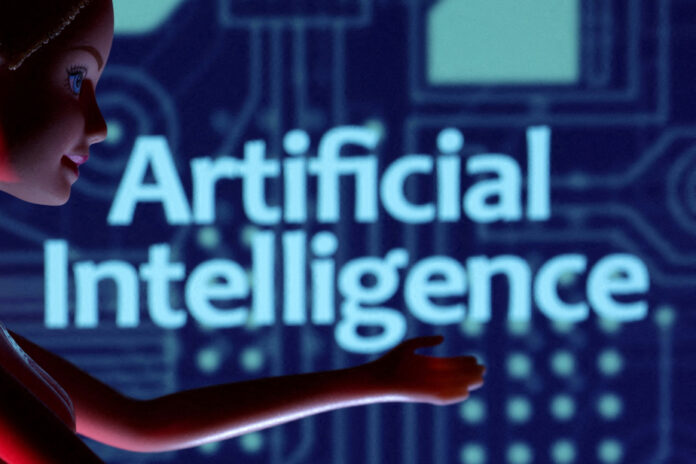Could a robot soon replace me at my job? This question is not far-fetched: the super-speed development of artificial intelligence (AI) and its endless possibilities, revealed to the world by ChatGPT, is creating anxiety among workers. These are afraid of being… obsolete.
Fanny Nehma, a 32-year-old Montrealer, graduated three years ago in office automation. Her goal was very clear in returning to the workforce after two consecutive maternity leaves: to change careers. She left the construction world to become an office worker.
She now works in an insurance firm. Her job, she loves it. Except… “I wonder how long I’ll be able to exercise it,” she says, visibly discouraged. I do administrative tasks, which are quite repetitive. I summarize texts, I write emails, I enter data. It worries me to think that maybe I did all this for nothing. »
Ms. Nehma actually fears being replaced by artificial intelligence. She’s not alone: Anxiety over advances in artificial intelligence is a new, but very real phenomenon.
“Technology anxiety already existed,” says Justine Dima, associate professor of human resources management at the Haute École d’ingénieur et de gestion in Switzerland, whose doctoral thesis at Université Laval focused on the impact of artificial intelligence in the workplace. “Artificial intelligence anxiety has taken over the workplace rapidly because of the information circulating through the media and social networks. And the pressure is on. »
Still little studied, this anxiety, called “AI anxiety”, is fed by a feeling of competition with something whose capacities and possibilities are poorly understood. Inevitably, the impression of not being big enough, and therefore of losing power, sets in for some workers.
According to research by two economists, Joseph Briggs and Devesh Kodnani, of the American investment bank Goldman Sachs, the results of which were published last March, artificial intelligence could eliminate some 300 million full-time jobs. worldwide. The report also reveals that nearly a quarter of tasks could be affected by artificial intelligence in Europe and North America.
Staggering figures… to be taken with a grain of salt. “These are estimates, warns Ms. Dima, it gives trends. But how fair is that? »
One thing is certain, workers feel stress, question themselves and experience a certain psychological distress in the face of the monster that is artificial intelligence. “The best thing is to understand what it is…and what it isn’t.” It goes through information, based on good sources,” says Professor Justine Dima.
For Janel Gauthier, anxiety can be a normal reaction, but that doesn’t mean it’s justified. “You have to try to take a step back, play it down and put it into perspective,” he says. There are a lot of governments who are interested in the issue at the moment and want to mark it all out. Also, it is important to be in contact with facts, experiences and examples. »
Mr. Gauthier draws a parallel with the COVID-19 pandemic: faced with a new situation, humanity has been able to react appropriately, he says. “With the development of vaccines, we found a way to deal with the virus, to continue to live and thrive. »
For Michel Dubois, senior director of experimental development at the Quebec artificial intelligence institute Mila, it is important to keep in mind that artificial intelligence will have positive repercussions.
“What if I told you that it can be a solution to free up seven hours of work per week, so you have more time to do the things you love, while increasing your productivity? »
Jobs will also be created, he recalls. Thus, all jobs that relate to data (data analyst, data scientist), computer security and ethics will be in demand in the coming years.
Fanny Nehma does not intend to change jobs again, but she is interested in the training offered within her company. She wants to stay abreast of technological developments. “I’m going to have to stay flexible and open,” she concludes.















